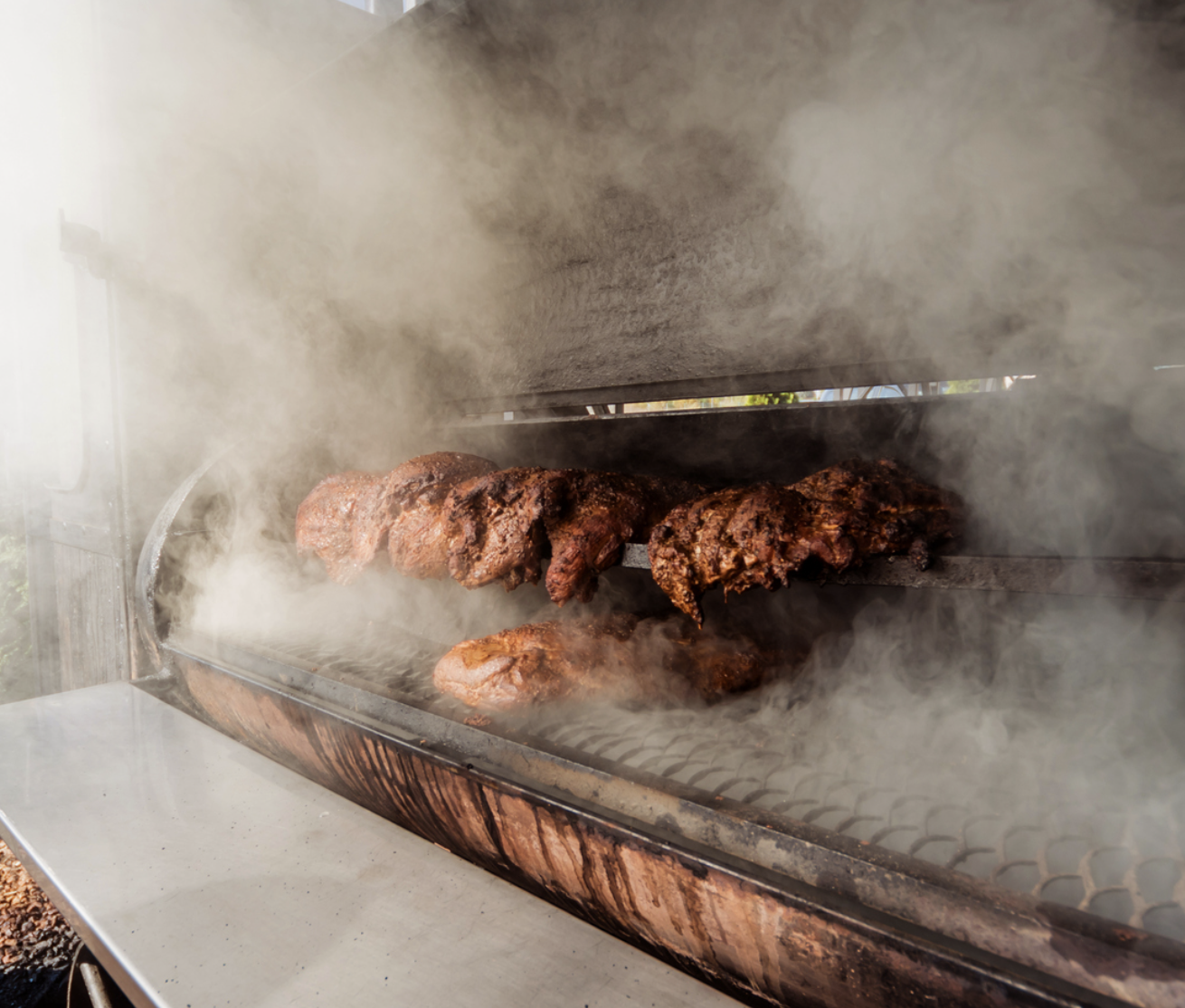
Roots, Race and Recipes: How BBQ Came About
When you hear the word barbecue — or BBQ —, what comes to mind? Hot summer days? Smoky ribs and burgers with all the add-ons? Maybe when you think about BBQs, you think of those delicious sides, such as mac ‘n cheese. Without a doubt, BBQ around the world has become synonymous with people feeling good and eating well with loved ones in a family-style setting.
Today, barbecue has become a staple form of cooking in many families around the world and the methods used vary. But did you know the roots of BBQ are based in Black and Indigenous history? In fact, the history of its roots and origins has often been erased or distorted. It’s perhaps hard to swallow (pun intended), but the origins behind everyone’s favorite easy, breezy, summer meal might be very different from what you imagined.
Looking back upon our global history of food, it’s evident that when it came to cooking, class, and race was a factor. If one could afford it, someone else did the cooking. However, dating back to the times of enslavement, there is a long history of Black people cooking meals for white families. They often had to use their wits and resources to come up with ideas to not only cook food but to easily prepare and preserve it too. In fact, many Black cooks took inspiration from indigenous-style outdoor cooking.
As The Guardian writes, “Enslaved Africans and Native Americans had a lot in common, culinarily-speaking: they had been cooking and eating in similar ways, despite an ocean between their civilizations. It only makes sense that, when their foodways, crops, cooking methods, and systems of preservation, hunting, fishing, and food storage collided, that there would be deep similarities and convergences of technique, method, and skill.”
The practice of barbecuing food wasn’t like what it is today. In its origins, it was manual labor, working over pits in the ground, in scorching temperatures, with little protection from the heat or the tools. This was hard work and only the strongest and most skilled could carry it out. This is why Black male slaves were often the ones who tended to the barbecues. This method of cooking came directly from European settlers being inspired by Native Americans, who would create shallow pits to cook the meat — and then enslaved Africans added their own touch of smoking and seasoning. When enslaved people were eventually emancipated, the cuisine, with its required skills and talents, became incorporated into their culture, becoming a skilled culinary technique all on its own.
Yet while many people correctly associate barbecue with Black and American culture, they often overlook its roots in slavery. What’s more devastating is that Native Americans have been completely erased from the conversation — they aren’t even associated with barbecues anymore, and are not credited at all for being the inspiration behind the techniques and styles.
Food is such an important part of our lives that it goes beyond being just cultural. Often it can be politicized with people taking undeserved credit for a style of cuisine or even prejudicially associating a certain food with a certain race. When we look at a type of cuisine, before we dig in, let’s try and take a moment and be thankful for the work that was incorporated in making the meal and the inspiration behind the ingredients and the ideas.

